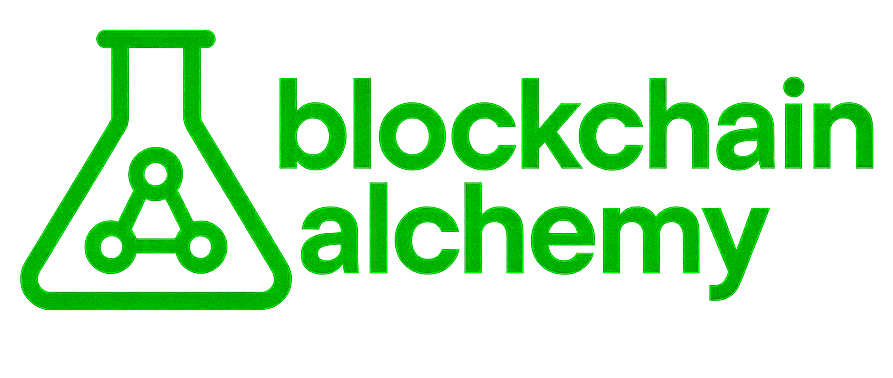Transform your abilities by offering specialized services that match current market demands. Identify your core expertise and package it for freelance platforms or direct client engagement, ensuring consistent revenue streams.
Focus on honing specific competencies that have proven commercial value, such as graphic design, copywriting, programming, or consulting. Presenting clear examples of your work boosts credibility and attracts paying customers.
Build a portfolio showcasing practical results to demonstrate your proficiency. Combining this with strategic networking increases opportunities to convert knowledge into a reliable source of earnings.
Skill monetization: turning talents into income
One of the most straightforward ways to generate additional revenue streams is through freelance platforms that connect individuals offering specialized abilities with clients seeking specific services. For example, blockchain developers can leverage their coding expertise by contributing to smart contract projects or decentralized applications (dApps), often earning cryptocurrency payments directly linked to their contributions.
Understanding how to package your abilities as a service is key for effective monetization. Platforms like Upwork or Freelancer allow professionals in areas such as graphic design, writing, and software development to present portfolios that highlight their technical proficiency and past results. This approach transforms discrete skills into marketable assets, creating opportunities for steady side earnings.
Leveraging Technical Expertise through Decentralized Marketplaces
Decentralized marketplaces built on blockchain technology provide transparent and secure environments where freelancers can offer niche services without intermediaries. For instance, services related to cybersecurity audits or cryptographic consulting are increasingly sought after on platforms powered by Ethereum or Binance Smart Chain. These ecosystems facilitate direct contracts between providers and consumers, reducing fees and enhancing trust via immutable transaction records.
The practical benefit lies in the ability to receive payments in digital currencies which can be converted into fiat or reinvested within other blockchain projects. As an illustration, freelance developers improving DeFi protocols may earn tokens whose value appreciates over time, creating both immediate and long-term financial advantages aligned with their contributions.
- Identify core competencies: Assess your strongest technical abilities applicable in freelance markets.
- Create detailed service descriptions: Clearly outline deliverables supported by examples or case studies.
- Select appropriate platforms: Choose reputable sites offering escrow and dispute resolution features for secure transactions.
- Build credibility: Gather client feedback and maintain consistent communication to enhance reputation.
A concrete example involves data analysts who utilize statistical programming languages such as Python or R. By providing analytical reports for businesses needing insights on consumer behavior or financial trends, they convert analytical skills into profitable engagements without committing full-time hours.
The transition from expertise possession to reliable remuneration requires continuous skill refinement combined with strategic marketing efforts. Engaging in community forums and contributing educational content can boost visibility while reinforcing authority in chosen domains. Regularly updating profiles with recent projects also signals ongoing commitment and adaptability necessary for sustained secondary earnings.
Identifying Marketable Personal Skills
To generate revenue from your abilities, begin by evaluating your core expertise and how it addresses specific demands in the market. Analyze which of your competencies solve problems or provide valuable services that others require. For example, a blockchain developer with proficiency in smart contract programming on Ethereum can offer freelance consulting to startups seeking secure decentralized applications. This targeted approach maximizes potential for stable income streams through specialized service offerings.
Quantitative assessment of your capabilities is critical: consider certifications, project experience, and technical proficiencies that distinguish you from peers. Data from platforms like Upwork indicate that freelancers with verified skills and niche knowledge command higher rates. For instance, professionals skilled in cryptographic protocols or DeFi analytics often secure contracts at premium prices due to their scarce expertise.
Practical Steps to Recognize Profitable Abilities
Begin by listing all personal competencies and categorizing them based on demand levels and ease of delivery as services. Use metrics such as search volume on job portals or blockchain-related gig marketplaces to gauge demand intensity. Next, perform competitor analysis to understand pricing standards and service gaps that can be exploited for financial gain.
- Technical proficiency: Programming languages (Solidity, Rust), blockchain infrastructure management.
- Analytical skills: Tokenomics modeling, data interpretation for market trends.
- Creative capacities: Designing NFT collections or UI/UX for crypto wallets.
This methodical breakdown helps isolate abilities with highest monetization potential tailored to freelance opportunities or permanent roles within crypto enterprises.
A key consideration is adaptability of your expertise toward scalable productized services versus one-off tasks. Services that allow automation or replication tend to yield more consistent returns compared to purely time-bound freelance gigs.
Acknowledging transferable skills enhances long-term earning ability by opening avenues beyond initial specialization. For example, knowledge in blockchain consensus algorithms can evolve into educational content creation or advisory roles within emerging Web3 projects. Continuous upgrading of abilities aligned with industry trends ensures sustained relevance and financial viability.
The process of converting personal aptitudes into profitable ventures involves strategic self-assessment supported by market intelligence and objective data analysis. By systematically identifying competencies backed by demand indicators and competitive benchmarks, individuals can effectively position themselves as valuable providers offering sought-after services within the blockchain ecosystem and freelance economy.
Choosing Platforms for Selling Services
Selecting the right marketplace to offer your expertise is critical for maximizing earnings and reaching the appropriate clientele. Platforms such as Upwork, Fiverr, and Toptal provide varied opportunities depending on the complexity of your abilities and type of services offered. For instance, Upwork supports long-term freelance projects that require advanced technical knowledge, while Fiverr caters more to quick, task-based engagements suited to emerging professionals. Understanding platform fee structures and client demographics can greatly influence your net revenue and project fulfillment rate.
Blockchain-based platforms like Braintrust and Ethlance introduce decentralized alternatives where users maintain ownership over their profiles and payments are often processed via cryptocurrencies. These networks reduce intermediary fees significantly, enhancing profitability for those with niche skills in programming, design, or consulting. Moreover, smart contracts enable automated escrow services which secure transactions until agreed milestones are met, adding a layer of trust absent in traditional freelance sites.
When evaluating service marketplaces, consider the integration of reputation systems that verify user history through ratings and completed contracts. Such mechanisms help build credibility that directly impacts demand for your offerings. For example, platforms employing verified reviews increase transparency for buyers seeking specialists in areas like blockchain development or data analysis. Additionally, some portals offer skill assessments or certifications that validate proficiency levels before allowing freelancers to bid on high-value projects.
Income diversification can also benefit from multi-platform presence; however, managing multiple accounts demands efficient workflow tools that synchronize communications and deadlines across channels. Tools like Trello or Asana paired with time-tracking apps facilitate organization when juggling numerous clients simultaneously. In practice, professionals combining traditional freelance sites with emerging decentralized platforms report improved exposure and reduced dependency on any single source of revenue–ultimately leveraging their capabilities more effectively in an increasingly competitive market.
Setting Competitive Pricing Strategies
Determining an appropriate fee for your service requires a clear understanding of your expertise and the market demand for your specific abilities. Freelancers who leverage blockchain-related skills, such as smart contract development or crypto asset analysis, should research prevailing rates on platforms like Upwork or specialized crypto job boards. A data-driven approach involves benchmarking against peers with similar experience levels and project scopes to avoid undervaluing or overpricing offerings.
Pricing models can vary between fixed rates, hourly billing, or value-based fees depending on the complexity and deliverables of each task. For instance, offering consulting on DeFi protocols might justify higher charges due to the required deep technical knowledge and regulatory awareness. Conversely, routine tasks like wallet setup assistance might be priced lower but benefit from volume-based discounts to attract repeat clients.
Factors Influencing Price Setting
Market Competition: Analyze competitors’ pricing structures and identify gaps where you can differentiate by offering niche services or faster turnaround times.
Skill Proficiency: Advanced certifications in blockchain technologies (e.g., Certified Blockchain Expert) often correlate with premium rates because they signal validated capabilities.
Client Budget Constraints: Understanding client financial limits helps tailor proposals that balance quality with affordability, increasing conversion rates.
- Assess client feedback history to adjust rates dynamically;
- Consider geographic economic differences impacting willingness to pay;
- Factor in platform fees that reduce net earnings when setting gross prices.
A practical example is how freelance blockchain auditors price their services: initial audits might be offered at a competitive rate to build reputation, while subsequent projects command higher fees owing to proven success records. Transparency about pricing rationale establishes trust and reduces negotiation friction.
Cultivating flexibility in pricing strategies enhances adaptability amid fluctuating market conditions and emerging trends. Offering tiered packages–for example, basic versus premium blockchain integration services–can capture a broader clientele base while optimizing revenue streams. Additionally, implementing milestone payments mitigates risk for both providers and clients during long-term engagements.
The key takeaway is aligning your remuneration with demonstrable proficiency and tangible value delivered rather than arbitrary figures. Regularly revisiting pricing strategies ensures competitiveness without sacrificing fair compensation for your unique capabilities within the freelance ecosystem focused on blockchain technology.
Building a Client Acquisition Plan
To effectively grow your freelance practice, focus on clearly identifying the unique expertise and abilities you offer that set you apart in the market. This begins with mapping out your professional strengths and matching them to specific client needs, which optimizes your chances of generating sustainable revenue. For example, blockchain developers can target startups requiring secure smart contract deployment, while cryptocurrency analysts may pitch services to hedge funds seeking data-driven insights.
Next, leverage multiple channels to reach potential clients by combining direct outreach with inbound marketing strategies. Utilize platforms such as LinkedIn and specialized freelance marketplaces where professionals showcase their portfolios and case studies. Presenting detailed examples of past projects helps demonstrate your competencies objectively, increasing trust and conversion rates. Consistent engagement through blog posts or webinars also supports authority-building in niche domains like decentralized finance (DeFi) analytics.
Client Segmentation and Value Proposition
Segmenting prospective clients according to industry verticals or project scale allows tailoring of proposals that align closely with their requirements. For instance, offering tailored consulting packages for NFT creators differs significantly from services aimed at institutional investors analyzing market trends. Developing clear value propositions based on measurable outcomes–such as improved transaction throughput or risk mitigation–enhances appeal and justifies pricing structures.
Implementing referral programs and partnerships amplifies client acquisition efforts by tapping into existing networks. Freelancers skilled in cryptographic protocols might collaborate with security audit firms to provide complementary offerings, thereby broadening exposure without excessive marketing spend. Tracking metrics like lead conversion rate and client retention through CRM tools ensures continuous refinement of acquisition tactics.
A well-structured client acquisition plan integrates these elements systematically, ensuring freelancers optimize utilization of their capabilities while maximizing financial returns. By applying methodical approaches supported by data analysis and continuous feedback loops, professionals can build scalable operations that convert proficiency into consistent work opportunities.
Conclusion: Effective Time Management for Supplemental Earnings
Prioritize allocating focused intervals to your freelance projects by leveraging specialized expertise and unique abilities. Structuring time around clearly defined service deliverables enhances productivity and ensures consistent progress without overwhelming primary responsibilities.
Integrating blockchain-based task automation tools can further optimize scheduling, allowing precise tracking of hours dedicated to various gigs. This technical approach reduces administrative overhead, enabling smoother conversion of personal proficiencies into tangible economic benefits.
Key Insights and Future Outlook
- Expertise segmentation: Breaking down complex skills into modular services facilitates targeted offerings on decentralized marketplaces such as Ethereum-powered platforms.
- Smart contract utilization: Automating payments upon task completion guarantees timely compensation and minimizes disputes in freelance collaborations.
- Time-token models: Emerging frameworks tokenize individual work hours, enabling fractional sales of abilities across multiple clients while maintaining transparent records on-chain.
- AI-driven workload balancing: Intelligent assistants predict optimal project timelines based on historical performance data, maximizing overall output quality.
The ongoing convergence of blockchain infrastructure with advanced scheduling algorithms signals an evolution in how personal capabilities transform into sustainable revenue streams. As decentralized finance matures, expect more granular control over the allocation of your professional efforts combined with enhanced security and trust mechanisms. Embracing these innovations will empower practitioners to efficiently harness their distinct competencies while maintaining healthy work-life balance.





